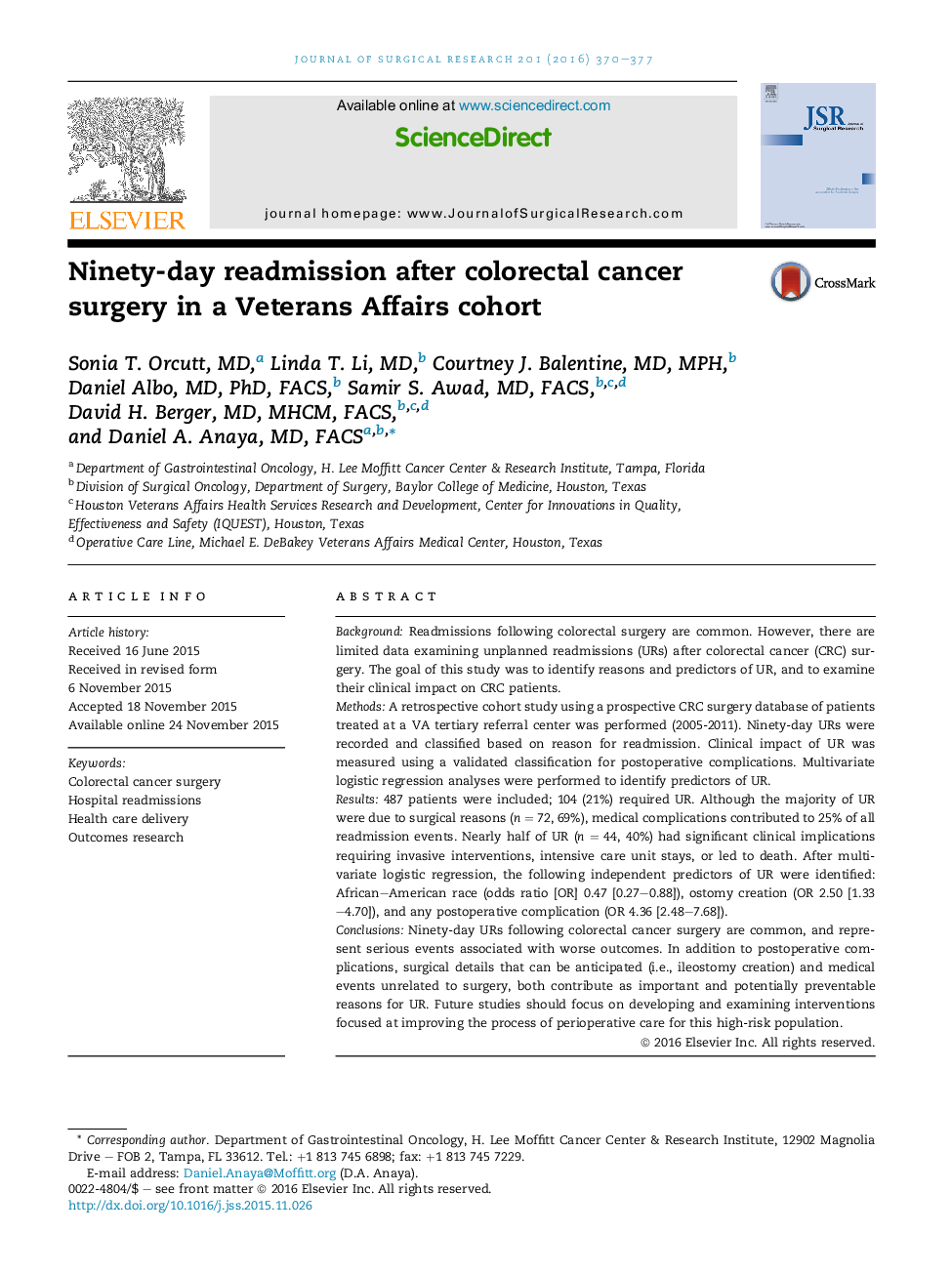| Article ID | Journal | Published Year | Pages | File Type |
|---|---|---|---|---|
| 4299390 | Journal of Surgical Research | 2016 | 8 Pages |
BackgroundReadmissions following colorectal surgery are common. However, there are limited data examining unplanned readmissions (URs) after colorectal cancer (CRC) surgery. The goal of this study was to identify reasons and predictors of UR, and to examine their clinical impact on CRC patients.MethodsA retrospective cohort study using a prospective CRC surgery database of patients treated at a VA tertiary referral center was performed (2005-2011). Ninety-day URs were recorded and classified based on reason for readmission. Clinical impact of UR was measured using a validated classification for postoperative complications. Multivariate logistic regression analyses were performed to identify predictors of UR.Results487 patients were included; 104 (21%) required UR. Although the majority of UR were due to surgical reasons (n = 72, 69%), medical complications contributed to 25% of all readmission events. Nearly half of UR (n = 44, 40%) had significant clinical implications requiring invasive interventions, intensive care unit stays, or led to death. After multivariate logistic regression, the following independent predictors of UR were identified: African–American race (odds ratio [OR] 0.47 [0.27–0.88]), ostomy creation (OR 2.50 [1.33–4.70]), and any postoperative complication (OR 4.36 [2.48–7.68]).ConclusionsNinety-day URs following colorectal cancer surgery are common, and represent serious events associated with worse outcomes. In addition to postoperative complications, surgical details that can be anticipated (i.e., ileostomy creation) and medical events unrelated to surgery, both contribute as important and potentially preventable reasons for UR. Future studies should focus on developing and examining interventions focused at improving the process of perioperative care for this high-risk population.
